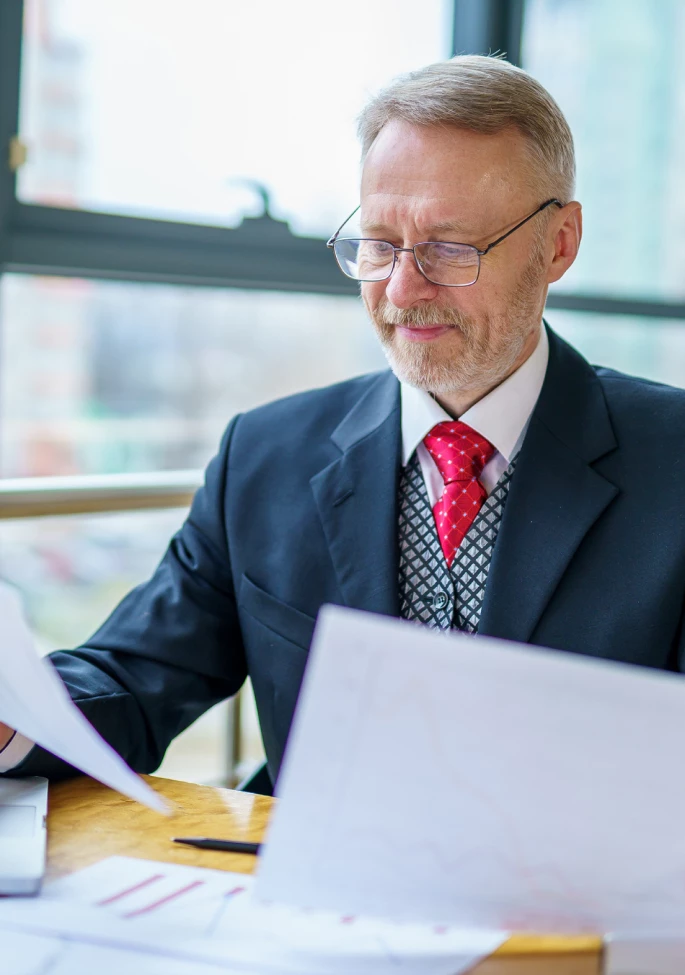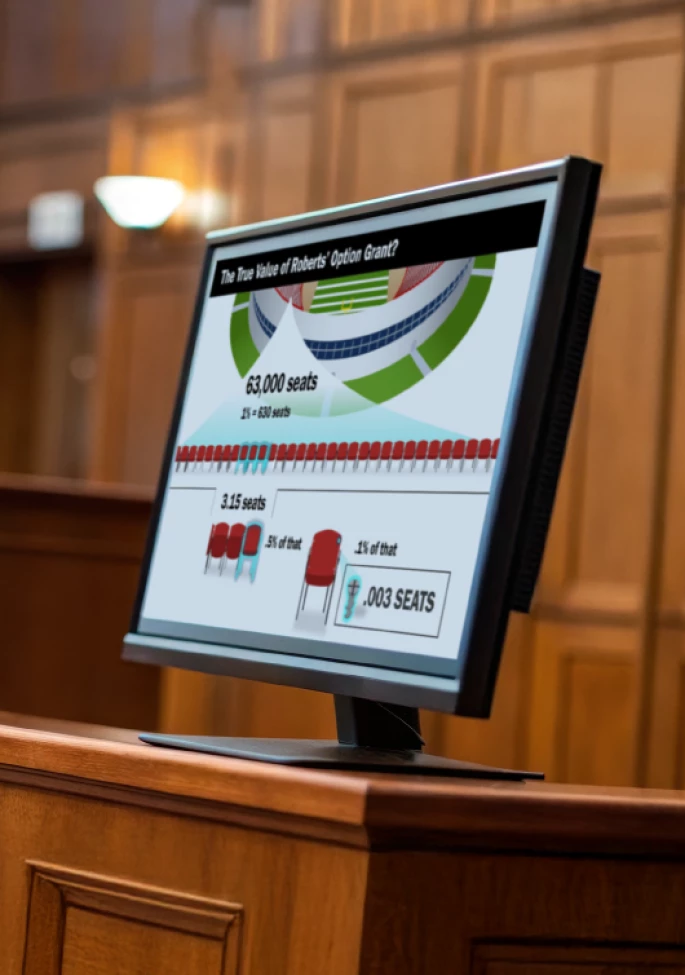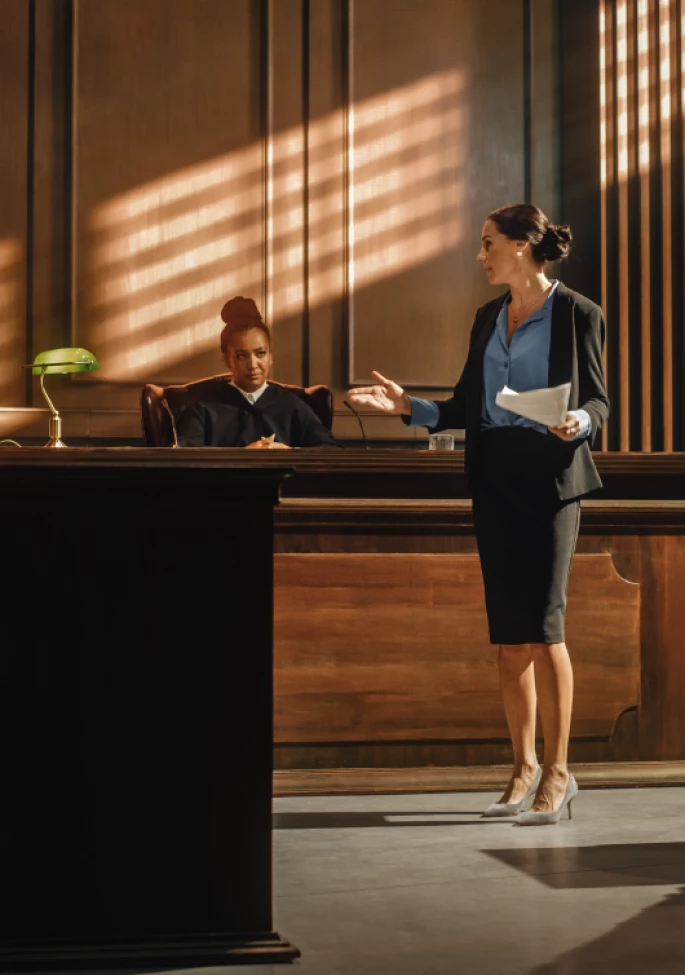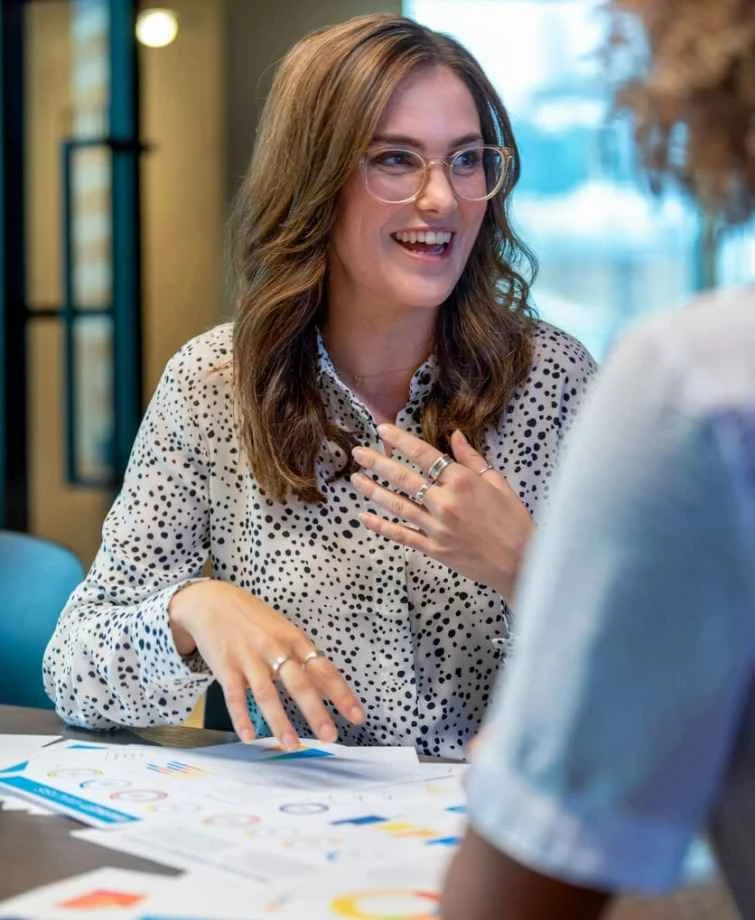Many high-stakes lawsuits filed these days often hinge on the behavior of company employees. Given growing anti-corporate attitudes among jurors, managing jurors’ perceptions of company witnesses and experts is more important than ever.
Most of the time, attorneys conduct witness preparation before a witness is scheduled for a video deposition and certainly before a witness takes the stand at trial. Witness preparation is part of a lawyer’s toolbox and something they do routinely for every case. So, what then would an attorney—with years of experience prepping witnesses—want with a trial consultant?
There are many reasons why you would want a skilled trial consultant, proficient in juror psychology and witness preparation techniques, to join your witness prep team. Primarily, attorneys have been trained to think about witnesses in terms of the evidence they provide. That is, they mostly consider the discrete bullet points of facts that witnesses submit to the record.
Conversely, experienced trial consultants understand the psychology of witnesses and the psychological barriers to persuasive communication, such as anxiety, motives, and witnesses’ agendas. We also understand juror psychology—i.e., how witnesses’ messages can either positively or negatively impact their credibility among the jury panel. Working collaboratively, we can ensure the witness’ testimony is not only providing strong thematic content, but also delivering messages in a way that increases credibility.
In addition to working collaboratively to improve witness credibility, there are other benefits of having a trial consultant assist with your witness preparation sessions. We briefly review those below.
Being Too Close Can Affect an Attorney’s Witness Evaluations
One key reason for involving a trial consultant to assist with witness preparation is that an attorney may become too close to an individual witness to see his flaws.
Here is a common scenario: You have worked with this fact or expert witness for years. Overall, you think the witness is likeable and believable and think they will be fine for their deposition or trial testimony. Yet even witnesses who appear “fine” may be exhibiting several of the basic characteristics that jurors have told us over the years negatively impact credibility—e.g., looking down when answering the key questions, using vocal fillers (“ah,” “um,” “probably,” “more than likely,” “I guess”).
These behaviors inadvertently communicate a lack of confidence in the content of witnesses’ testimony. Sometimes attorneys are so close to the people who will be witnesses in a case that it’s difficult for them to even see that there might be a problem. If you hear yourself say your witness will be “fine,” we encourage you to take a closer look.
Receiving assistance from outside your circle is critically important in cases like these. After an attorney works with someone for a long time, it is easy for them to ignore potentially problematic behaviors that are now so familiar. Using a consultant for witness preparation helps provide an objective view of your witness. This perspective is based on years of feedback gathered from jurors’ witness evaluations in thousands of mock trials and hundreds of post-trial interviews. Be sure to ask your consultant for their years of experience and the basis for their witness evaluations.
Maintaining an Attorney-Witness Relationship of Trust
One of the goals of working with a witness is to improve that person’s performance in some way. It might be to minimize the number of “ums,” reduce distracting hand gestures, or improve content. Some of these are traits that a witness has developed over the course of a lifetime, so it is only natural that they would feel threatened or maybe even overwhelmed by a critique from their own attorney of the way they testify. And so, no matter the specific behaviors we want a witness to address, the witness preparation is bound to include some difficult conversations, which could negatively impact your relationship with the witness.
Therefore, it is often far more helpful to the attorney if the conversation is initiated by an outside, third-party consultant instead of the attorney himself. It’s like the strategy of “good cop/bad cop” with the role of “bad cop” designated to the consultant, so the attorney can maintain the “good cop” role and ultimately their relationship with the witness.
Why Use Trial Consultants? We Are the Experts
With an extensive background in jury psychology and preparing witnesses for deposition and trial, witness preparation consultants are experts in human behavior and how jurors interpret trial testimony.
How do witness preparation consultants gain this extensive knowledge? We have talked to jurors, including thousands of mock jurors and hundreds of actual trial jurors. These conversations have shown us exactly what jurors do and do not like when evaluating witnesses’ testimony.
Interestingly, the behaviors that jurors find most untrustworthy and that they are most frequently critical of (poor eye contact, fidgeting, hedging, soft voice) are exactly the behaviors that people display when they are nervous. These are the same behaviors witnesses often exhibit when they are testifying in high-stakes litigation. Thus, a consultant combines the knowledge of what jurors do and do not like with the ability to persuade a witness to reduce or eliminate negative behaviors while emphasizing positive ones.
Why Use Trial Consultants? We Help Manage the Challenges of Testifying
Many witnesses do not realize that testifying is not a conversation; instead, it is a unique form of communication that is fraught with ritual and plenty of rules about what to do and what not to do.
As witness preparation professionals, we help each witness manage the overwhelming environment. Additionally, we teach strategies to manage the overwhelming amount of information witnesses are expected to remember (most of the time from several years earlier). We do this with several memory and communication techniques that help witnesses affirmatively communicate their messages. By doing this, we equip witnesses with the ability to manage cross-examination and answer any question.
Furthermore, a good consultant can also help a witness tell their truth in a jury-friendly way, such that jurors will understand and believe that witness. Sometimes this is as simple as training witnesses to remember their areas of expertise and to confine their testimony to those particular areas. Sometimes the task is more complicated, but an experienced consultant is likely to have seen similar witnesses and can create a strategy tailored to suit the needs of a specific witness.
Witness Preparation Consultant: A Small Investment with Large Returns
We hear a lot from even our closest attorney clients that they don’t have the budget to bring on a consultant. Regardless of whether your case is small or large, witness preparation is an investment that pays dividends.
For instance, we recently had a client call to request our help preparing a witness before her deposition in an accident case. While the deposition wasn’t going to be videotaped, it was very important for the witness to communicate to opposing counsel that she did all the right things on the night of the accident. This was important because the end goal was to settle the case early and save his long-time client unnecessary litigation expenses and the possibility of an adverse verdict.
This witness tended to include too much information in her responses to questions (e.g., over-volunteering). She was also gruff, made poor eye contact, and was disrespectful to authority. In one session, we helped the witness stop over-volunteering information and provided suggestions for improving her presentation demeanor in order to improve her credibility. We were able to deliver the difficult messages about the witness’ testimony and, at the same time, preserve the attorney’s relationship with her.
Conclusion
As every attorney knows, it is possible to conduct your own witness preparation. But it’s also possible to change your own oil or to raise your own cattle. Sometimes it pays to go to a specialist.
For a case where the outcome—large or small—hangs on how a particular witness performs, it’s worth it to go to an expert.







